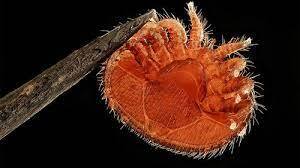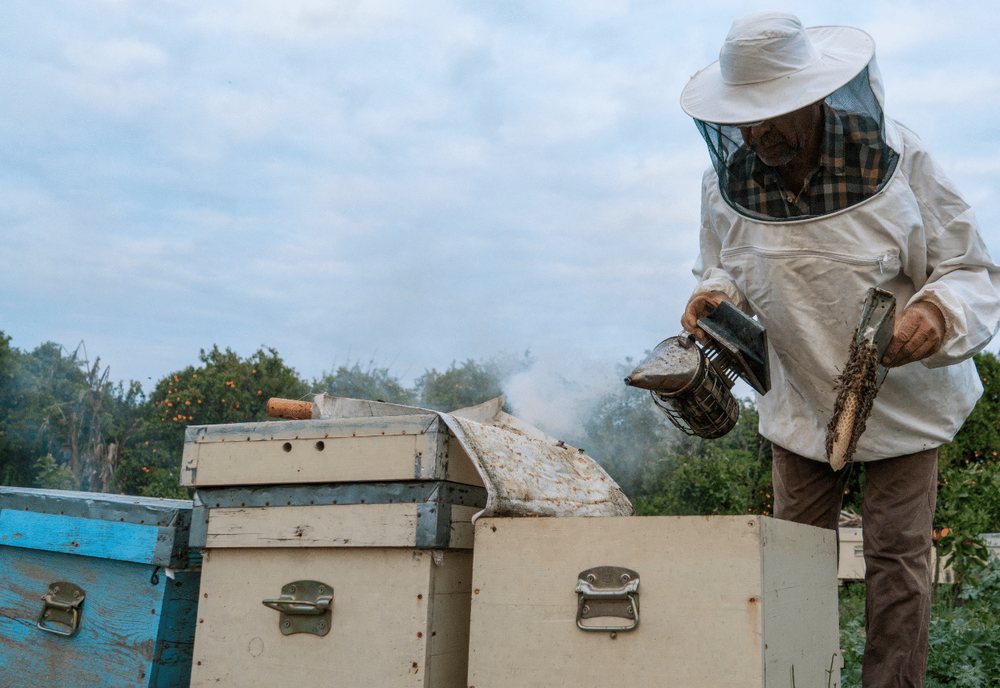Varroa mite "no longer eradicable"
Kristin Murdock
25 February 2024, 2:40 AM
 Australian Honey Bee Industry Council CEO Danny Le Feuvre said new Varroa Development Officers will be welcome in the bee industry. (Image Australian Honey Bee Industry Council)
Australian Honey Bee Industry Council CEO Danny Le Feuvre said new Varroa Development Officers will be welcome in the bee industry. (Image Australian Honey Bee Industry Council)Last year, during the Varroa mite infestation which threatened the apiary industry, the NSW Government took a risk and zoning response to the crisis, which drew criticism from local industry stakeholders.
President of the Western Plains branch of the NSW Apiarists' Association, Daniel Warman, blasted the Government's lack of clarity around the zoning response which locked down hives in varying areas of threat.
"It’s an absolute circus," Mr Warman said at the time. "Owners are having to euthanise their hives in red zones with no clear compensation to allow their business to survive."
Fast forward six months and the National Management Group (NMG) has just approved the next phase of the national Transition to Management (T2M) plan for Varroa mite. The T2M plan aims to increase resilience and minimise ongoing impacts of varroa mite naturalisation across Australia's bee and pollination-dependent industries.
Almond Board of Australia CEO Tim Jackson welcomed the move.
“Pollination reliant industries have a large stake in the transition to management as well as beekeepers," Mr Jackson said. "Experience from around the world shows that pollination reliant industries will need to work very closely with beekeepers to mitigate problems caused by the Varroa mite’s impact on wild European honeybee populations.”
The NMG made the decision in late 2023 that Varroa mite was no longer eradicable from Australia after commencing the national program for eradication in July 2022.
This confirms what Mr Warman was already stating last September.

The varroa mite has changed the face of beekeeping in NSW
"We are one of the last countries to get Varroa mite," he said. "Eventually it will be just something we need to live with and learn to manage."
"You can eradicate some from an area, but they are coming in on ships. Meanwhile, many beekeepers cannot survive. It's devastating. The Government really need to think about compensation going forward."
While there is no mention of compensation, the new strategy focuses on increased training to help beekeepers prepare and manage the pest.
According to Minister for Agriculture, the Hon. Tara Moriarty, the NSW Government is prepared and will immediately roll out resources, information, support and training for beekeepers and pollination reliant agriculture sectors to address this new biosecurity transition.
"We will work closely with industry at this critical time and deliver programs that enhance the health and robustness of NSW’s beekeeping industry," Ms Moriarty said. "Australia is the last major honey producing country in the world to get Varroa mite, and we are using international experience and science in understanding how best to prepare beekeepers and the beekeeping and pollination reliant industries."
Varroa mite was first detected in DPI surveillance hives at the Port of Newcastle in June 2022. The Varroa mite Response was established immediately and became a national response funded and supported by Commonwealth, state and territory governments as well as contributing industries.
The aim of the Transition to Management Plan is to increase resilience and minimise ongoing impacts of Varroa mite for the bee industry and pollination reliant industries. This outcome will be achieved by slowing the spread, building industry resilience, providing management options and support for pollination security. It's a stance welcomed by the lead industry body.
“The plan will see Varroa Development Officers employed nationally to help drive on the ground support for beekeepers dealing with this pest for the first time, which will be welcomed by all I am sure," Australian Honey Bee Industry Council CEO Danny Le Feuvre said.
The recruitment process for Varroa Development Officers (VDOs) who work directly with beekeepers to increase their ability to manage Varroa will begin shortly.

Another critical role of the VDOs will be to develop, train and maintain a network of volunteer beekeepers who will monitor hives for the presence of Varroa and provide information on the spread of the mite.
Additionally, the response will employ a Pollination Industry Coordinator (PIC) to assist the pollination dependent industries to better understand and manage their needs. This will be critical for smaller industries who have relied on wild bees for pollination and never engaged with pollination service providers.
For the latest information head to Varroa mite emergency response.



